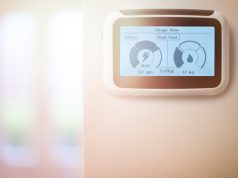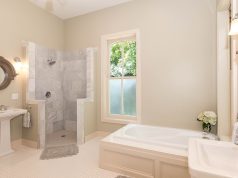There are currently 210,000 privately owned outdoor swimming pools in the UK, but many people opt instead to have indoor pools because of the unpredictable weather. Indoor swimming pools create an environment that is much easier to maintain, keep clean and decorate. You also have the freedom to add fancy furniture and soft furnishings that won’t be affected by any bad weather.
The main downside to indoor swimming pool maintenance though is the humidity. Uncontrolled humidity can cause all kinds of problems, such as mould, damp and in severe cases, the permanent damage of the structure of the surrounding building.
Within the last decade, the options to dehumidify indoor swimming pools have improved greatly. Previously, the practice of control largely involved basic ventilation and letting a lot of outdoor air in, which is a simple idea and easy idea, but for heating and energy, it is also an extremely expensive idea.
Since 2005 energy prices have doubled, and so, the options for keeping the humidity under control in pool rooms are much more focused on energy saving and different methods of keeping it under control, including an emphasis on the ability to manage how much fresh air is let in, if any.
Signs You Need A Dehumidifier
If your swimming pool is totally enclosed or mostly enclosed then the chances are you need a dehumidifier. Excess condensation on the windows and the strong smell of pool chemicals are also key signs that you do not have proper ventilation and dehumidification. You can read a detailed article about the problems with humidity in pool rooms here.
Can You Manage Humidity Yourself?
Sometimes it is impossible to control the humidity in a pool room, although it is advised that you keep the RH between 50 and 60%. You can find out more information about humidity control here.
The Two Main Ways To Dehumidify An Indoor Pool Room
There are currently two key ways an indoor pool room can be dehumidified and that is with either a condenser dehumidifier or a ventilation dehumidifier. Both options have different pros and cons and will suit different indoor swimming pool setups.
Condenser Dehumidifiers
If your indoor pool is small, then the condenser dehumidifier is likely to be the main choice of dehumidifier for you. It works by constantly recirculating air and absorbing the water using an evaporating feature. You can also install types that enable you to utilise a small amount of outdoor air, improving the quality of the indoor air. It is important to note that the process does generate some heat and energy, despite the fact that the product is quite compact and easy to install.
De-humidification With Ventilation
It might be your preference to have a larger amount of natural air running through the indoor swimming pool rooms in which case ventilation is the best choice of dehumidification. In this instance, the product that you use will work differently to a condensation dehumidifying unit, because the indoor air is being mostly, or completely replaced. In many cases, a preferable option is a dehumidification unit that uses outdoor air because it is more hygienic and provides a cooling effect.
The main downside is that it costs a lot more than a condenser dehumidifier. It also needs more space, which may not be readily available if you have a small indoor pool room. You may also not be able to have a ventilation unit fitted if the air outdoors is more humid than the air inside your pool room.
How To Choose The Right Dehumidifying Option
Choosing the right option to dehumidify your pool room can be really tricky. As a really good start to your research, do consider browsing commercial dehumidifiers available to get an idea of what is on offer. Ask friends that have indoor swimming pools what they use and what they would recommend, and don’t be afraid to get in touch with companies for quotes and opinions.
In the case of small swimming pools or, spa rooms then you might not even have to make a big decision because you probably don’t need a lot of air from outdoors and a condenser humidifier will work well. If you have a swimming pool that is medium to large, or you have a strong desire for outdoor air and ventilation in your pool room, it may be that a ventilation dehumidifier is an excellent choice for you. You must have room for the unit though, and you will need a bigger budget.
Is Getting A Dehumidifier Worthwhile?
If you don’t use anything to ventilate or dehumidify your pool area then there is a lot of risk to your swimming pool room. You may end up ruining the look of the room, there might be damage to the structure, mould and it might even be not very nice to spend time in the pool room so it becomes impractical to even have a pool in the end. In the case of keeping your pool room looking beautiful long-term, a dehumidifier is a wise investment. It should really be the kind of installation included in your original pool design. You can take a look at some beautiful private pool designs here.
I could float in the pool for hours, just letting the water carry me – Jill Scott
Having a private indoor swimming pool is a complete luxury, but as with any element of the home, it comes with management and maintenance needs to keep it luxurious. Do seek expert help and do work with a company who will advise you to install a unit that works for your particular pool-room and situation. The result should be an installation that works, doesn’t blow your budget, and that doesn’t take up so much room the actual pool room is blighted by it. Eventually, you will have a comfortable, well-ventilated room with its humidity under control, and a stunning pool to continue to enjoy too.














